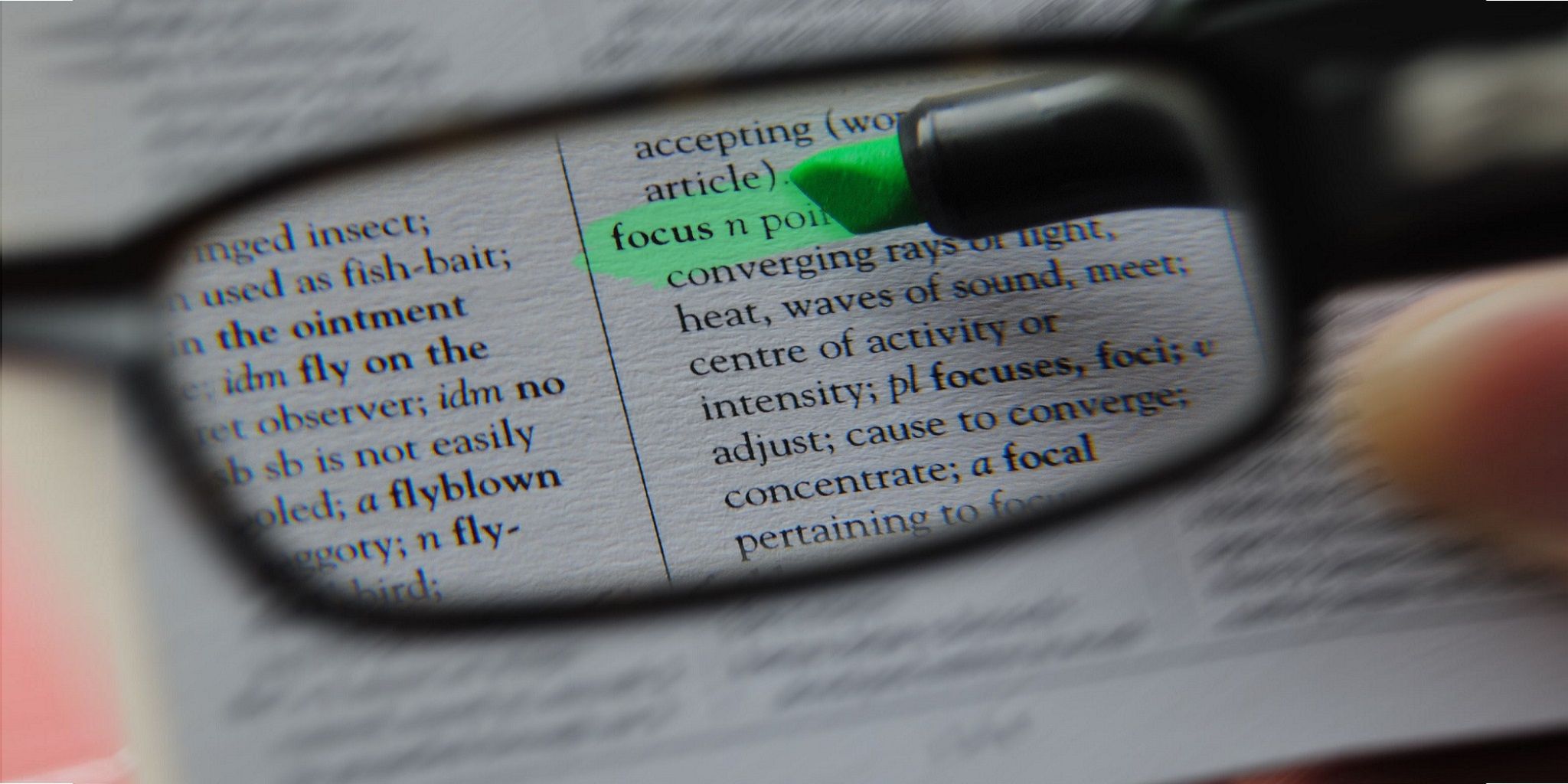Focus... and how to improve it every day
Most productivity authors are fairly consensual about the most important, valuable and limited resource for getting results: Focus! In a world that grows overwhelming each day, some effective strategies may help you improving focus and escaping the permanent attention battle that’s set upon many of us.
Focus is a measure of attention, or mental processing power. It refers to how much of your brain capacity is assigned to a certain mental activity. We are more or less focused on something.
That something, that brain activity, may have multiple possible origins. It could be processing an outside input entering your sensory channels — for example when you are reading this text, and a part of your brain is processing it, giving it meaning, rearranging stuff inside your mind. If an email alert waves at the bottom of your screen — “New message from John Smith!” - at least a part of your focus will address it, even if you continue to read. Your phone ringing or someone calling your name in the room will also demand a focus redistribution, probably more abrupt and effective.
There are many other examples. An internal dialogue or concern, for instance digesting some recent discussion, reviewing what you should or shouldn’t have said. Or computing a decision, evaluating options. Or conducting a complex activity involving muscles like playing a difficult piano piece. Or a biological alert for food or sleep or simply an excruciating tooth pain making it impossible to think properly on anything else.
All these would require at least a part of your mental processing power to be assigned to them. They get a part of your focus.
Limited “mental RAM” = limited focus
Usually many of these activities happen simultaneously, sharing focus between them. If too many of them fight for our limited mental resources, none will be done well. Like a computer running too many applications, it eventually the job gets done, but painfully slow. In our brain things also slow down if we overload it. Important decisions start taking ages, and simple operations drag themselves all over the place, no matter how hard you try rushing things around you. The walk in the park doesn’t feel so nice, food doesn’t taste so good, and your kid asks you to close your laptop and really give him some decent attention. Simply said, you are overloading your mental RAM and getting “out of focus”. Very likely your outcomes are sub-optimal. Accepting focus limitation improves your choice ability.
Focus and Safety
Focus depends heavily on safety, a really important human value. Focus on some activity will be higher or lower according to how safe you feel about not doing other activities that need your attention as well. If you suspect it’s not OK to be not doing the others, you’ll just keep an eye on them, internally assessing how dangerous it can be not doing them instead. This possible trap involves new inputs as well, having us confronting the current choice with the new “threat”. It’s a constant surveillance that costs a bunch of your focus, mental energy and even joy! It can have you wasting a whole weekend thinking about how you might be getting some work done, and risk losing on both sides: no work done + no truly relaxed weekend without thinking about it…
Focus Top 5 Strategies
Improve safety of choice
Keep a good collection of what you are not doing, building trust on each moment’s bet. It always takes a final leap of faith, even some bravery, to dive into whatever you choose, forgetting everything else for a bit.
Pace new inputs evaluation
New demands will weaken the trust of your choice and make you reassess options again. Keep them paced, with some kind of rhythm, like traffic lights, holding them outside your world until you are ready for more. Turn off any kind of e-mail alerts, checking it fewer times and at more regular intervals. New thoughts and concerns will also pop inside your mind, distracting you from full focus. Be attentive and write them down, to be assessed later.
Have a “tunnel mode”
Frequent interruptions and focus redistribution may limit your focus depth. Use at least a part of your day to deep-focus high-value activities. Allow yourself to disconnect from everything. Be creative: try for example scheduling meetings with yourself in hidden rooms.
Reduce responsiveness
Having unanswered e-mails, calls, text messages, …, can intuitively make you feel somehow at fault. Resist it. Go for reliability instead of quickness: answer always, but in a paced fashion, especially for e-mails. Strongly discourage emergency requests by e-mail (or other “slow-paced” channels), and remember that too much emergency communication usually means lack of planning or unclear responsibilities.
Reduce options
Dramatically reduce options in front of you. Close windows and tabs on your pc. Remove paper documents from your desk. Hide your huge to-do list and make a quick guide for the day with a maximum of 2 or 3 options. Be proactively in charge of narrowing focus options towards what you really want to accomplish.
Photo: © Viktor Gladkov / Shutterstock

